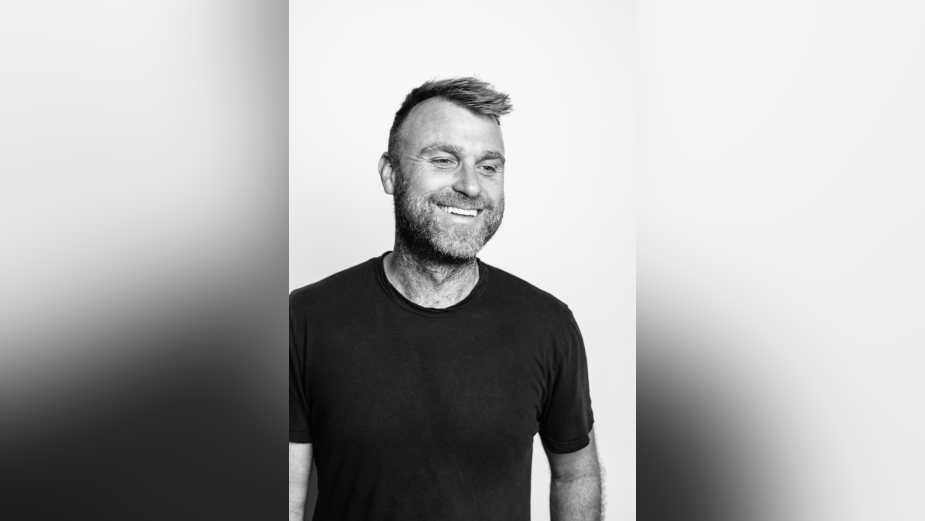
My Biggest Lesson: Andrew Tracy

As executive creative director of One Thousand Birds, Andrew oversees creative for all audio post production for commercials, film, VR/AR, as well as full production for sound art + experiential.
Andrew studied music synthesis at Berklee College of Music, a programme covering analogue signal flow and synthesis all the way through programming for interactive art and new media. After moving to Los Angeles in 2006, he cut sound for indie horror films and shorts, eventually landing as lead sound designer and mixer at commercial mix studio. He approaches each project as a composition, building and layering the elements, sound effects, foley, music, and dialogue to create an entirely immersive experience.
He and co-founder Laura Dopp created One Thousand Birds in 2013. With offices in Manhattan, Los Angeles, Bogotá, and Lisbon, One Thousand Birds works on sound design projects across all media with partners like Google, Nike, Spotify, MoMA, HBO, and Meta. Aside from sound design, One Thousand Birds creates interactive sound installations for brands and events. They also foster community and support independent musicians through their sound focused magazine Hii.
LBB> Is there one event / piece of wisdom from your career that's always stayed with you? What is it?
Andrew> At the beginning of my career as a sound designer, at my very first internship, I mainly worked on low budget indie horror films. I didn't always know what to do in certain situations, especially dealing with problematic dialogue. I remember the guy that I was working for telling me one day, “It's all smoke and mirrors.” As in, hey, we use all kinds of tricks in sound. It’s always stuck with me. We're doing tricks, adding some magic to the film that wasn't there before. We’re turning something into a piece of art or a finished product.
LBB> Set the scene! How old were you when you learned this insight, where were you working, how long had you been there, what year was it, what was your role and how were you feeling generally about your career at this point?
Andrew> I was 25 and had just moved to LA. I tagged along with some friends; one was going to grad school to be a director, the other one was pursuing screenwriting. I was so excited about my sound design internship — I worked six days a week. I had a lot to learn and really got my chops up. Often I was by myself, just figuring it out, and the guy who I worked for would come in every once in a while and show me how to fix mistakes I had made. I was very eyes-open and ready to learn.
LBB> If you got some words of wisdom from a particular person or there’s a key, influential person in this story – tell us about them! What was your relationship to them, what were they like, how did you feel about them (admiration, awe, respect… disrespect)…
Andrew> The guy I worked for was a composer and sound designer. When I was starting out, I was in awe — like holy sh*t, this is what this guy does? Especially in that first year, it was pure admiration and respect for his talent. I thought it was really cool that he not only did the work, but also that he worked for himself. I got to the point where I was taking on my own projects, and after a few years we were working in tandem.
LBB> How did it change you as a person and in your career?
Andrew> The biggest thing I learned about sound designing, and this can apply to anything, is there’s never a quick way to do it. There's not just a button that you push — creating good sound design takes a lot of time, focus, and creativity. Sometimes you cut something and you think “oh, this is awesome,” and the client is like, “well, it’s not really right.” Then you have to be able to pivot and not get stuck. When I get really good creative direction and hear the finished project, it’s usually different than I would have thought to cut it and that’s fun for me. You can't be too precious about your work; you have to have an open mind and put in the time to get it to that “movie magic” place. I love that.
LBB> And as you’ve progressed in your career, how have you re-evaluated this piece of advice?
Andrew> I don't think that there's been a reevaluation, but more of a reinforcement of this idea that even though our jobs are technical, we are making a finished product. We're putting a layer on the project that makes it more cinematic.
LBB> Is this insight or piece of advice something you now share with others – if so, how do they respond to it?
Andrew> Giving sound advice and feedback on the final product is a big part of what I do at One Thousand Birds, especially with my role as creative director for the sound team. But the best part is the lessons I pick up from our other sound designers. They discover things all the time while working that are incredibly valuable.












